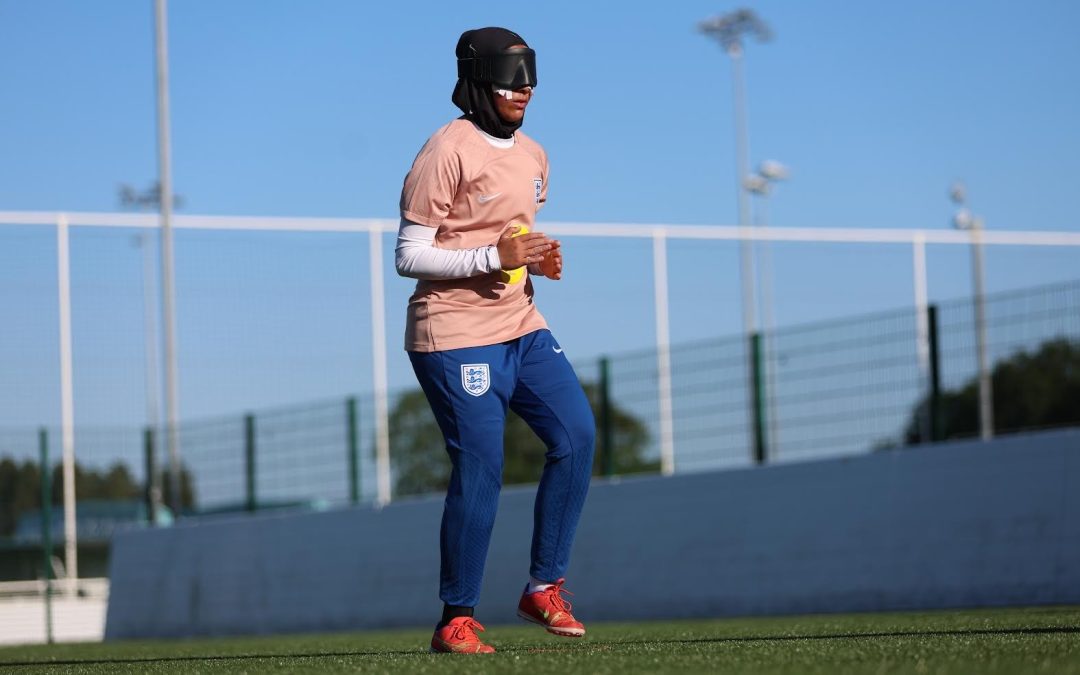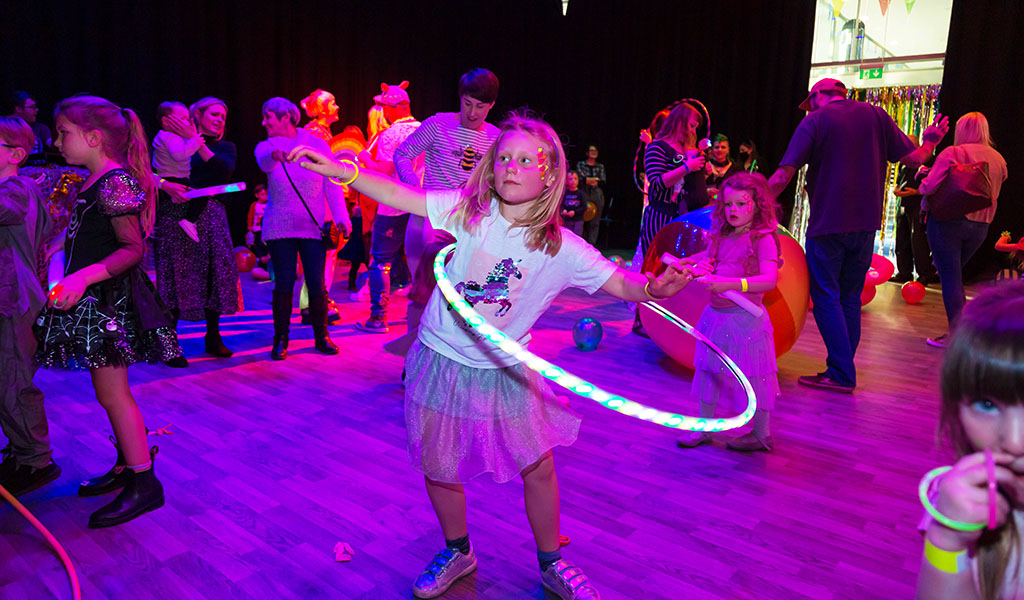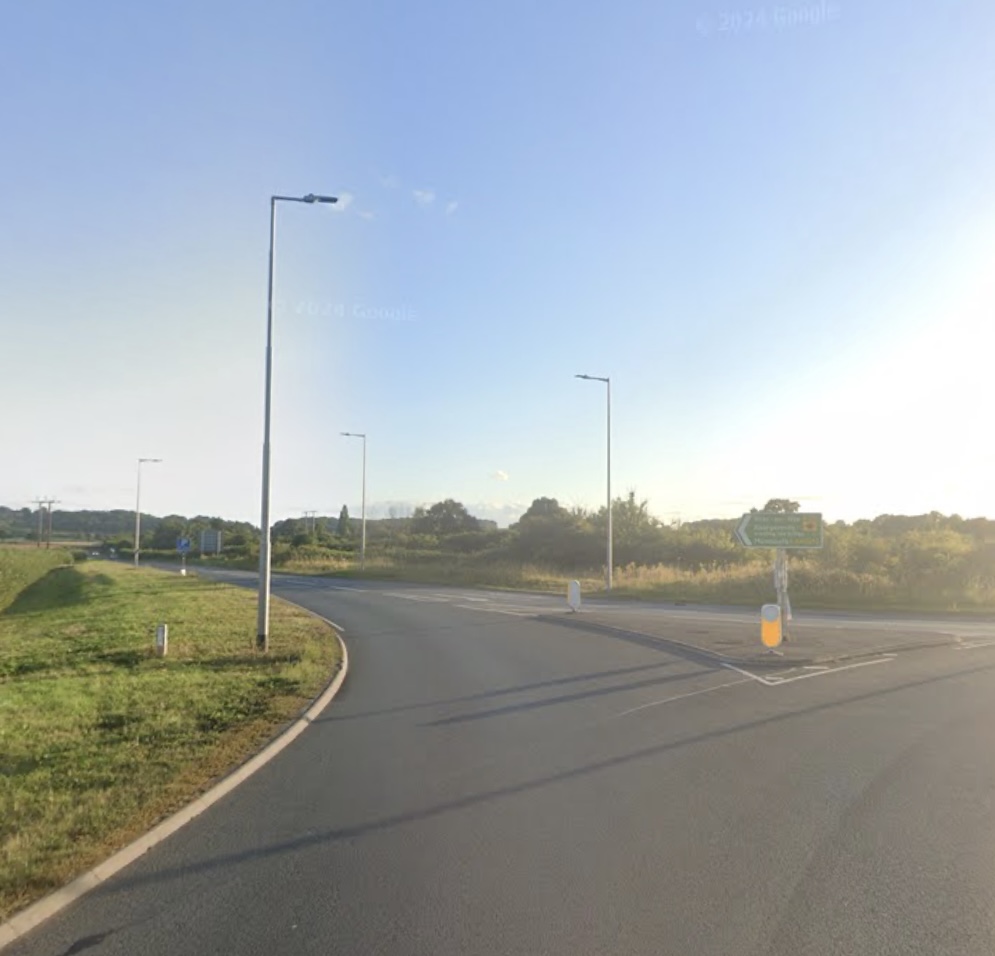A football-mad Hereford student is preparing to represent her country for the first time at a major sporting event – just five years after losing part of her sight.
Ayman Hafiz, 19, is in line to be selected for England women’s blind football team which is competing at the 2023 International Blind Sport Federation (IBSA) World Games at the University of Birmingham between Monday, August 14 and Monday, August 21.
The IBSA World Games – which is sponsored by RNIB – is arriving in the UK for the first time and will see around 1250 athletes from 70 countries competing across 10 sports, making it the world’s largest sporting event for blind and partially sighted athletes.
The World Games will signal Ayman’s competitive debut at international level, after training with Manchester City’s visually impaired team since she was 14-years-old when she was diagnosed with Oguchi disease – a rare visual impairment that impacts vision in low and brightly lit environments.
This means that Ayman has reduced visual field and is unable to see smaller details, and cannot see in the dark.
Recalling the moment she first noticed that something was wrong with her sight, Ayman said: “I ignored it for a few months, as I just thought I needed glasses.
“One day though I tripped over a kerb because I couldn’t distinguish between a slope and a kerb – and that’s when I realised something might be wrong.
“At the start I wasn’t very accepting of it because I didn’t know what to expect with my eye condition, and I still don’t know what to expect because some doctors have said that my eye condition means that my eye sight might improve, or could continue to gradually decrease – so that’s probably the hardest thing to come to terms with, but overcoming
the difficulties I have faced has been because of the support network I have had.”
That support network saw Ayman tap into support services in Manchester that enabled her to adapt to a new way of life – such as using braille and assistive technology – but one passion she refused to give up was her football.
“I have always loved playing football, especially in primary school, so being able to train with Manchester City soon after I had my diagnosis really helped me,” added Ayman, who plays as a forward.
“When I take to the pitch there’s no other feeling like it – it’s addictive and the adrenaline rush that I get is incomparable to anything else.”
Part of Ayman’s journey to adapting to life with partial sight has been attending the Royal National College for the Blind in Hereford – which apart from St George’s Park is the only other provider of a pitch dedicated to blind football – and is where she honed her talents for the international stage.
She added: “I first came to the college in 2020 where I was playing partially-sighted futsal, and shortly after that I had quite a drastic drop in my level of sight, so my futsal coach recommended that I give blind football a go.
“I was used to playing partially-sighted futsal where I could rely on the sight that I did have, but in blind football you have to put shades on so you can’t see anything, so I was a bit reluctant to do that at first, but he convinced me in the end and I haven’t looked back since and have been in love with the sport.
“A lot of my training is gym training – increasing my muscle mass in my lower body, and then a lot of drills relating to my positioning. So for myself as a midfielder I focus on a lot of receiving the ball and turning and finishing.
“In blind football you are relying much more on people talking to you, so the person at the back will be what the team is built on.”
Ayman will be joining her England team mates for three training camps ahead of the IBSA World Games in the elite settings of St George’s Park – as she takes a brief break from her studies and academic dream of becoming a psychologist.
And despite Ayman getting the chance to show off her love for football at the IBSA World Games this summer in front of her family and the wider sporting community, she is remaining level-headed about the experience, and is encouraging others to give sport a go too.
She said: “A lot of the things that will contribute to our performance will be handling our nerves – as many of us are making our debuts – so even playing on a pitch with a crowd and playing against different international teams that play and communicate differently to us will also be useful for us moving forward.
“The IBSA World Games is also a great platform to demonstrate to other blind and partially sighted people that they can play sport just like their fully sighted counterparts.
“The biggest barrier any blind or partially sighted person will encounter when taking up exercise or sport is just getting started – whether that’s going to the gym or a sports club. If it’s for you it’s for you, but even if you don’t like it you’ll have gained something out of it because you’ll then have the confidence to apply to other areas of life.”
For more information about the 2023 IBSA World Games visit www.ibsagames2023.co.uk, and for more details on ways that blind and partially sighted people can get involved in sport, see British Blind Sport and RNIB’s See Sport Differently campaign: www.britishblindsport.org.uk/see-sport-differently




